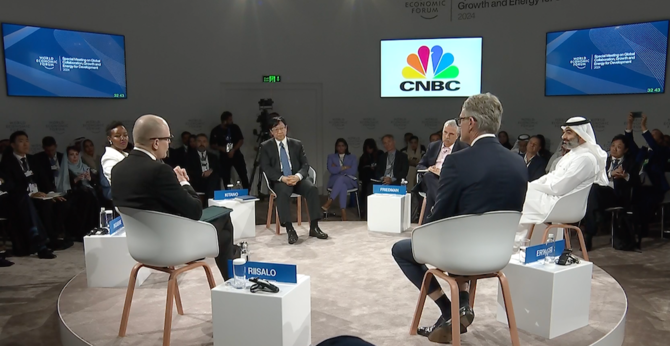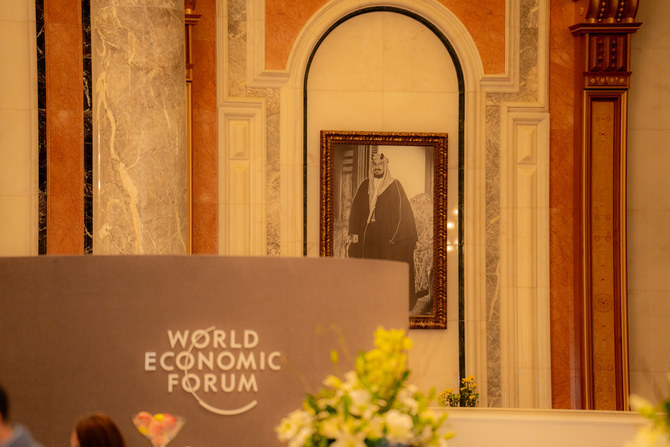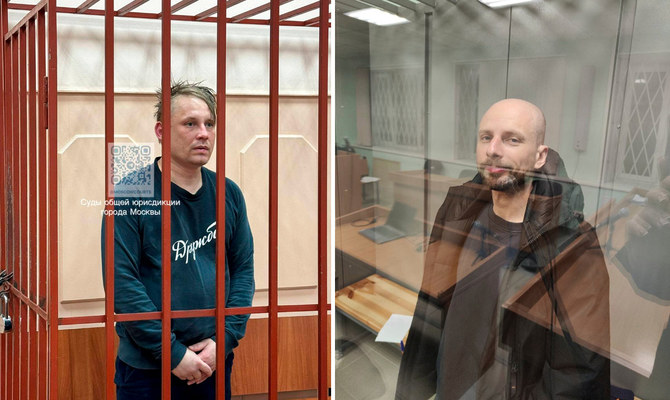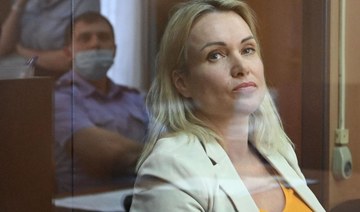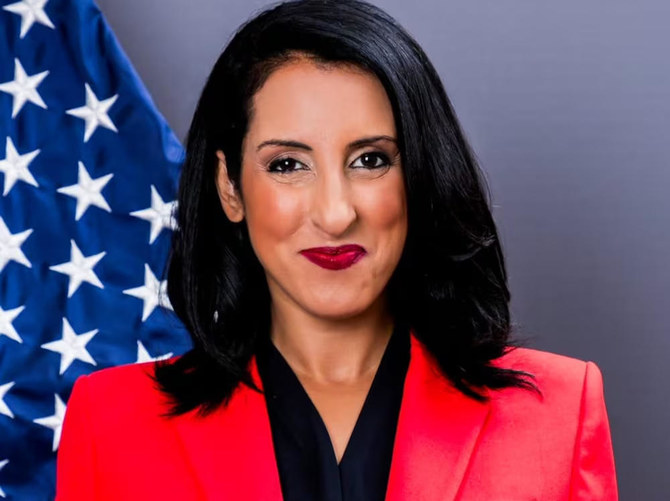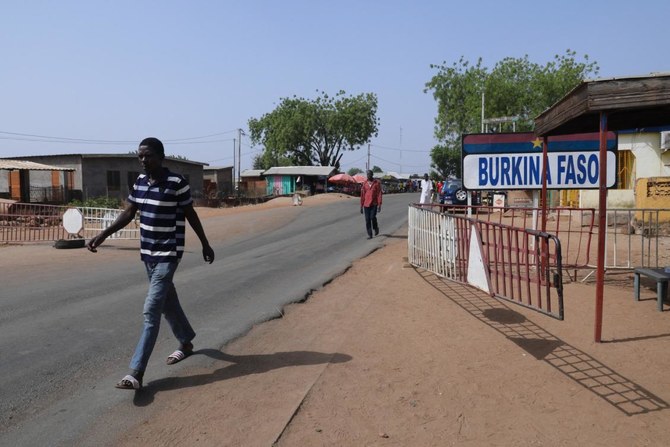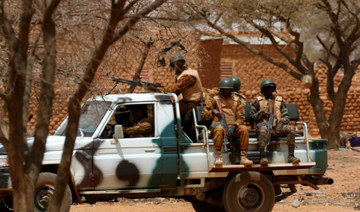SANTA MONICA: Snap announced a host of new features revealing the company’s increased focus on artificial intelligence, augmented reality and creators at the fifth annual Snap Partner Summit held on Wednesday in Santa Monica, Los Angeles.
The company launched new story formats, more monetization options for creators, enhancements to its shopping tools, and updates to its My AI chatbot.
There are over 300,000 lens creators around the world that have published more than 3 million lenses resulting in over 5 trillion views, Sophia Dominguez, director of the AR Platform Partnerships & Ecosystem at Snap, told Arab News.
She added: “Two out of three Snapchatters consume AR lenses every single day, so that’s really amazing and in the MENA, 85 percent of people use lenses every single day.”
Due to the popularity of Snapchat in the Middle East, Snap is launching its Creator Studio in Riyadh later this year. The first Snap Creator Studio was launched in Paris, France, making Riyadh the second.
“Both of those studios are to help bring people together and educate them,” Dominguez said.
The Paris studio is more focused on AR, while the one in Riyadh will concentrate on creators. The latter will help creators learn and understand how to create engaging stories, succeed in the revenue share program and grow their subscribers, among other things, she said.
“Just the amount of sheer talent that has been coming out of the region has been incredible, so I’m really excited about the growth of the ecosystem there,” Dominguez added.
As competition grows from the likes of TikTok, Snap is looking for ways to incentivize creators to use Snapchat more.
The company has announced updates to its revenue-sharing program. Now, creators who have at least 50,000 followers and 25 million monthly Snap views are eligible to enroll in the program, as long as they post at least 10 stories per month.
Several creators took to the stage during the day to share their experiences using Snapchat.
Creators JoJo Siwa and David Dobrik both said that the platform allows them to be genuine and authentic, which makes it easier to share content on Snapchat compared to other platforms that require more planning and editing before posting.
Shopping is clearly a big focus for Snap with several AR-powered shopping activations drawing crowds throughout the day.
The company has already partnered with several brands and these partnerships were evident through a virtual try-on booth (and free sneakers) for Nike; a gesture-based vending machine for Coca-Cola; and a clothing try-on mirror for Dior.
Samsung, the NFL, and Microsoft are some of the other brands that will be integrating Snap’s AR tech into their products and services. Its AR Enterprise Services offering Shopping Suite brings together different shopping features, including enterprise management and hands-on integration services.
This includes AR Mirrors, which one could demo at the event, that allow consumers to see themselves try on different products in real time in a retail space.
Early users include eyewear company Goodr, which found that its customers were 81 percent more likely to add products to their cart after using AR Try-On, said Jill Popelka, head of ARES.
AI was a hot topic at the summit, with Snap’s My AI chatbot taking center stage. The ChatGPT-powered chatbot has been receiving nearly 2 million chat messages per day, which is expected to increase as it is now available globally.
With further enhancements underway, My AI will be able to snap back users soon. For example, if a user sends a picture of tomatoes, it will reply with suggestions for tomato-based recipes.
In a blog post published earlier this month, Snap said that it had learned about “some of the potential for misuse” of My AI mainly because users “trick the chatbot into providing responses that do not conform to our guidelines.”
Snap CEO Evan Spiegel said at the summit that 99.5 percent of responses from My AI were in line with the community guidelines, with work underway to address the remaining 0.5 percent. It was, however, unclear when that work would be complete.
The summit closed with a chat between Spiegel and journalist Kara Swisher. When Swisher asked about the potential TikTok ban in the US, Spiegel joked: “We’d love that.”
On a more serious note, he acknowledged that a ban could set a dangerous precedent for tech companies, saying: “It is important for us to be thoughtful and really develop a regulatory framework to deal with security concerns, especially around technology.”
When asked about competitors like Instagram and TikTok, he said: “Snapchat, at its core, is a messaging application, but Snap, as a company, is a technology company.”
He added: “Over the years Snapchat has really evolved. It did start out just as an app for sending photos back and forth and now it’s so much more. And I think that’s why we think of ourselves more broadly as a technology company.”
FAST FACTS
Saudi Arabia
• Snapchat reaches more than 90 percent of 13 to 34-year-olds.
• Snapchat has a monthly reach of 20 million.
• Snapchatters opened the app over 45 times every day in 2022.
• By 2025, almost all the Gen Z and millennial population in KSA are anticipated to be frequent AR users.
MENA
• Over 85 percent of daily users interact with lenses every day.
• Snapchat reaches 1 in 3 of 18 to 34-year-olds in the UAE.
• Interacting with products that have AR experiences leads to a 94 percent higher conversion rate in the UAE and KSA.
• An average of 80 percent of consumers in both the KSA and the UAE expect and desire to use AR as a practical “tool” in their everyday lives.
Global
• There are over 750 million monthly active users.
• Snapchat sees over 6 billion AR Lens plays every day on average.
• Over 300,000 AR creators and developers have built more than 3 million AR lenses.
• 250 million people already engage with AR on Snapchat every day.
• By 2025, over 75 percent of all smartphone users will use AR daily.












